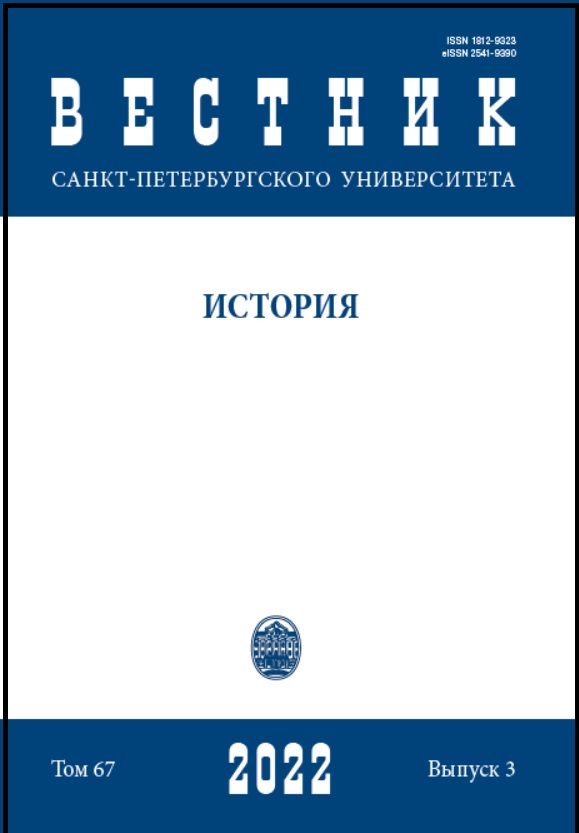Implementation of Brezhnev’s and Gorbachev’s Doctrines towards Countries of Eastern Europe
DOI:
https://doi.org/10.21638/spbu02.2022.306Abstract
The article analyzes two concepts of the USSR’s policy towards its allies in Eastern Europe — “Brezhnev doctrine” and “Gorbachev doctrine”. Relying on declassified documents of the Politburo, the author shows that these “doctrines” were direct opposites, and their implementation led to different consequences. The justification of the right to intervene for the sake of saving socialism was substantiated in 1968, but the origin dates to the end of the Second World War. The USSR and other countries of the Warsaw Pact — Bulgaria, Hungary, Poland, the GDR — tried to find a compromise solution to overcome the situation in Czechoslovakia and avoided deploying troops, but the Czechoslovak leadership didn’t comply with the accepted joint agreements. Documents demonstrate that the main motive for the intervention was the desire to save socialism and Czechoslovakia as part of the Warsaw Pact. Thus, there was an attempt at prevention of redressing of balance of power in favor of NATO on the European
continent and at ensuring security. The revision of the “doctrine of limited sovereignty” began in 1985 under the new General Secretary M. S. Gorbachev. The former policy aimed at preserving the USSR’s sphere of influence was being replaced by the policy of creating a new system of European security and building a “common European home”. The article shows that during the Perestroika, it was not possible to develop an adequate policy that met the interests of the USSR, which resulted in the withdrawal of the USSR from these countries. Subsequently, they became members of NATO and turned into military and political opponents of Russia.
Keywords:
Brezhnev doctrine, Gorbachev doctrine, Warsaw Pact, Politburo of the Central Committee of the CPSU, Soviet Union, Czechoslovakia, Dubcek, reforms, the introduction of troops
Downloads
References
References
Downloads
Published
How to Cite
Issue
Section
License
Articles of "Vestnik of Saint Petersburg University. History" are open access distributed under the terms of the License Agreement with Saint Petersburg State University, which permits to the authors unrestricted distribution and self-archiving free of charge.





